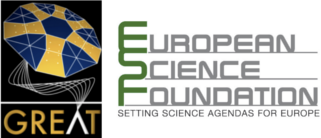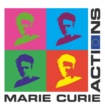Project Title: Stellar Abundance Patterns
Contact: Prof Sofia Feltzing (sofia@astro.lu.se)
Further Details: http://www.astro.lu.se/ and http://www.astro.lu.se/~sofia/GREAT-ITN.html for specific job information.
Description: The LUND ESR will undertake a number of methodological studies in order to test to what level we can reliably identify stars with common abundance patterns. Importantly, we will do this for the type of abundances from the Gaia follow-up and from Gaia itself. The uniqueness of a moving group can be established by studying the internal elemental abundance spread and comparing the abundance pattern to that in field disk stars. Field stars show a range of metallicities and some intrinsic spread in relative abundances. Existing studies show that kinematical information alone cannot distinguish between true, coeval, nearly single-metallicity substructures and those of merely dynamical origin. Probing the elemental abundance patterns is therefore essential.
Important Eligibility Information concerning ESRs:
Early-stage researchers are those who are, at the time of selection by the host institution, in the first four years (full time equivalent) of their research careers. This is measured from the date when they obtained the degree which formally entitles them to embark on a doctorate, either in the country in which the degree was obtained or in the country in which the research training is provided, irrespective of whether or not a doctorate was envisaged. Researchers are normally required to undertake trans-national mobility (i.e. move from one country to another) when taking up their appointment. One general rule applies to the appointment of researchers in a network:At the time of selection by the host organisation, researchers must not have resided or carried out their main activity (work, studies, etc.) in the country of their host organisation for more than 12 months in the 3 years immediately prior to their recruitment. Short stays, such as holidays, are not taken into account. As far as international European interest organisations or international organisations are concerned, this rule does not apply to the hosting of eligible researchers, however the appointed researcher must not have spent more than 12 months in the 3 years immediately prior to the selection by the host organisation in the same appointing organisation.

